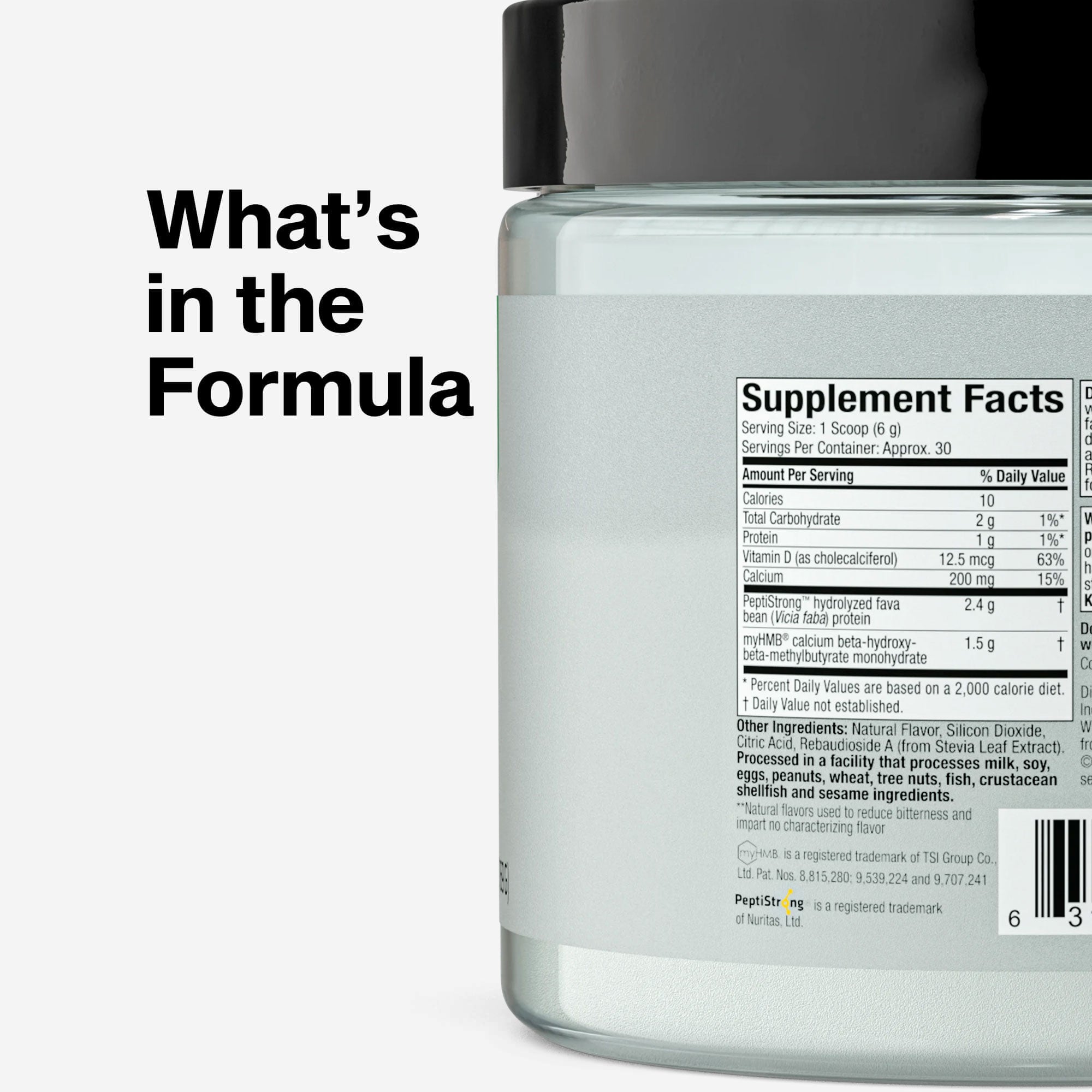Optimize Your Exercise Results: The Function of Peptides for Structure Muscular Tissue Described
Peptides have actually become a substantial variable in maximizing exercise results. These brief chains of amino acids are understood to affect muscle mass development and recovery. By advertising the release of development hormones, peptides can improve protein synthesis. This procedure is crucial for fixing and building muscular tissue fibers after rigorous training. However, the specifics of just how to successfully integrate peptides right into a health and fitness routine remain much less understood. What are the effects for professional athletes and physical fitness enthusiasts?
Understanding Peptides: What They Are and Just how They Function
Peptides are brief chains of amino acids that play a crucial function in different organic features, consisting of muscle structure. Consisted of 2 or more amino acids linked by peptide bonds, these molecules act as signaling representatives in the body. They can affect numerous physical processes such as hormone metabolic process, cells, and release repair. Peptides can be naturally occurring or manufactured and are often classified based on their feature, such as growth variables or hormonal agent forerunners.
In the context of muscle mass growth, certain peptides promote healthy protein synthesis and support healing after intense exercise (buy Peptides for Building Muscle). They function by boosting the body's all-natural systems, setting off anabolic processes that result in muscular tissue growth. Furthermore, peptides might help in fat loss and boost overall physical performance. Recognizing the functions and possible advantages of peptides can provide valuable insights for athletes and health and fitness lovers aiming to optimize their training routines and attain much better results
The Science Behind Muscle Mass Growth and Healing
Muscular tissue growth and recovery are basically driven by muscular tissue protein synthesis, a process that repair services and builds muscle mass fibers after physical effort. Understanding the devices behind recuperation and repair work is crucial for enhancing training results. This process not just improves muscle stamina but likewise supports overall sports efficiency.
Muscle Mass Protein Synthesis

Healing and Repair Service Processes
Recovery and repair procedures are essential parts of muscular tissue development, as they make it possible for the body to reinforce and recover after extreme physical task. During workout, micro-tears occur in muscular tissue fibers, which cause a complicated biological response. The body uses numerous peptides, such as IGF-1 and BPC-157, to improve recovery by promoting cell regrowth and decreasing swelling. These peptides boost the release of development hormones, helping with muscular tissue repair service and adjustment. Ample nutrition and hydration additional assistance these procedures, ensuring that the body has the necessary foundation for healing. Ultimately, effective healing not just enhances muscle development however also prepares the body for succeeding workouts, maximizing general performance and results in the long-term.
Secret Advantages of Peptides for Muscle Mass Structure
Peptides have emerged as a powerful device in the domain name of health and fitness, particularly for those seeking to enhance muscle mass growth and performance. These short chains of amino acids play a vital function in boosting protein synthesis, which is important for muscular tissue repair and development. By advertising the launch of development hormonal agents, peptides can enhance muscular tissue mass while at the same time decreasing body fat, leading to an extra toned physique.
Peptides might improve recovery times, allowing individuals to train harder and much more regularly without the typical tiredness linked with arduous exercises. This accelerated recovery facilitates regular progress and boosted general performance. On top of that, peptides can enhance endurance and endurance, enabling athletes to push their limitations throughout training sessions. Ultimately, the incorporation of peptides right into a fitness routine can yield substantial benefits, making them an appealing option for those committed to maximizing their muscle-building efforts.
Types of Peptides Made Use Of in Health And Fitness and Body building
While numerous peptides serve distinct features, a number of have gotten particular appeal in the fitness and bodybuilding areas for their muscle-building residential properties. Among these, Development Hormone-Releasing Peptides (GHRPs) are remarkable for stimulating the release of growth hormonal agent, which assists in muscular tissue development and fat loss. Another noticeable category is Insulin-like Development Variable 1 (IGF-1), which promotes muscular tissue cell growth and recovery.
Furthermore, Collagen peptides are increasingly made use of for improving joint health, a vital aspect for body builders participated in extreme training. Peptides like BPC-157 have also gathered attention for their potential in healing injuries and improving healing times.
Last but not least, CJC-1295, a growth hormone secretagogue, is preferred for its ability to raise muscular tissue mass while boosting rest and recovery. These peptides stand for simply a few alternatives offered to fitness fanatics aiming to optimize their outcomes and efficiency.
Exactly How to Integrate Peptides Into Your Exercise Routine
Incorporating peptides right into an exercise program calls for cautious consideration of a number of vital elements. Picking the appropriate peptides, timing the doses effectively, and keeping an eye on progression are necessary steps for making the most of advantages. By coming close to these components thoughtfully, people can enhance their muscle-building initiatives.
Choosing the Right Peptides
Picking the appropriate peptides can significantly boost an individual's workout regimen, as these substances play a necessary role in muscle mass development and recuperation. To pick the right peptides, one have to first identify details fitness goals, such as enhanced muscular tissue mass, boosted endurance, or faster recovery times. Popular peptides like GHRP-6 and Ipamorelin are understood for their ability to stimulate development hormonal agent launch, while others like BPC-157 concentrate on recovery and recuperation.
People need to likewise consider their experience degree and any underlying health and wellness problems before integrating peptides. Consulting with a health care professional or a knowledgeable fitness instructor can supply valuable understandings. Eventually, the right peptides should straighten with personal fitness purposes and assistance total wellness and well-being.
Timing Your Dosages
Timing plays a vital function in making the most of the advantages of peptide supplements for muscle growth and additional reading recovery. To attain suitable results, individuals need to consider providing peptides near to their workout routine. Several professionals advise taking peptides around thirty minutes before exercise, as this can enhance efficiency and promote muscular tissue synthesis during training. Post-workout management is additionally crucial, usually within an hour after workout, to promote healing and muscular tissue repair. Additionally, uniformity in timing assists maintain constant levels of peptides in the body, better supporting muscular tissue development. Staying with a routine application routine permits better integration into a workout regimen, making certain that the body completely profits from the anabolic impacts of the peptides.
Keeping An Eye On Progression Effectively

Safety And Security and Side Results of Peptide Usage
While peptides are commonly proclaimed for their muscle-building advantages, it is necessary to consider their safety and security and potential side results. Users may experience a variety of adverse results, including shot site reactions, migraines, and stomach disruptions. Extra serious worries entail the danger of hormone inequalities and modifications in metabolism, which can cause lasting health and wellness issues. In addition, the unregulated nature of several peptide products questions regarding their pureness and credibility, boosting the threat of contamination or improper dosages.
It is also essential to note that the long-term effects of peptide usage continue to be largely unknown, as many studies have been performed only in temporary circumstances. Subsequently, individuals thinking about peptides for muscular tissue enhancement must seek advice from healthcare experts to consider the advantages versus the prospective risks, ensuring a safe and informed approach to their health and fitness goals.
Real-Life Success Stories: Peptides at work
Many professional athletes and physical fitness fanatics have reported remarkable improvements with the use of peptides in their training programs. These compounds have actually been attributed with boosting muscle development, improving healing times, and raising general athletic performance. A specialist body builder shared that integrating peptides led to an obvious boost in muscle mass within a few weeks, permitting him to lift much heavier weights and achieve his competitors goals. buy Peptides for Building Muscle.
In a similar way, an affordable runner kept in mind that peptides significantly lowered her healing time, enabling her to train tougher and a lot more regularly without injury. One more person, a recreational gym-goer, praised peptides for their function in weight loss while maintaining lean muscular tissue, attaining a figure he had actually long preferred. These endorsements highlight the potential of peptides as a game-changer in health and fitness, highlighting their performance in numerous athletic searches and highlighting the expanding rate of interest in peptide treatment amongst those seeking to optimize their exercise results.
Regularly Asked Questions
Can Peptides Be Used for Fat Loss too?
Peptides can undoubtedly be utilized for fat loss. Research suggests that specific peptides may boost metabolic process, advertise lipolysis, and help in body make-up changes, making them a potential device for individuals aiming to reduce body fat.
Are Peptides Legal to Utilize in Sports Competitions?
Peptides are usually restricted in sporting activities competitors, as they fall under the pop over to these guys category of performance-enhancing compounds. Athletes should seek advice from appropriate policies to guarantee conformity and avoid prospective disqualification or fines linked with their usage.
For how long Does It Take to See Outcomes From Peptides?
Outcomes from peptides can normally be observed within four to six weeks, relying on aspects such as individual physiology, dose, and the certain peptide utilized. Consistency in training and nutrition also substantially affects results.
Do Peptides Need a Prescription for Acquisition?
Peptides commonly need a prescription for lawful purchase, as they are identified as dangerous drugs in many regions. Availability can vary based on location and particular peptide kind, demanding consultation with a health care provider.
Can Peptides Connect With Other Supplements or Drugs?
Peptides can engage with various supplements and medications, possibly boosting or lessening their impacts. It is crucial for people to consult healthcare professionals before integrating peptides with other compounds to assure safety and security and performance.
These peptides promote the launch of growth hormonal agents, promoting muscle mass fixing and adaptation. Among these, Growth Hormone-Releasing Peptides (GHRPs) are notable for boosting the release of growth hormonal agent, which assists in muscular tissue growth and fat loss. Picking the ideal peptides can noticeably improve a person's exercise regimen, as these compounds play an important duty in muscle development and healing. Timing plays an important duty in taking full advantage of the advantages of peptide supplementation for muscle development and recovery. Outcomes from peptides can generally be observed within four to 6 weeks, depending on elements such as individual physiology, dose, and the Our site certain peptide utilized.